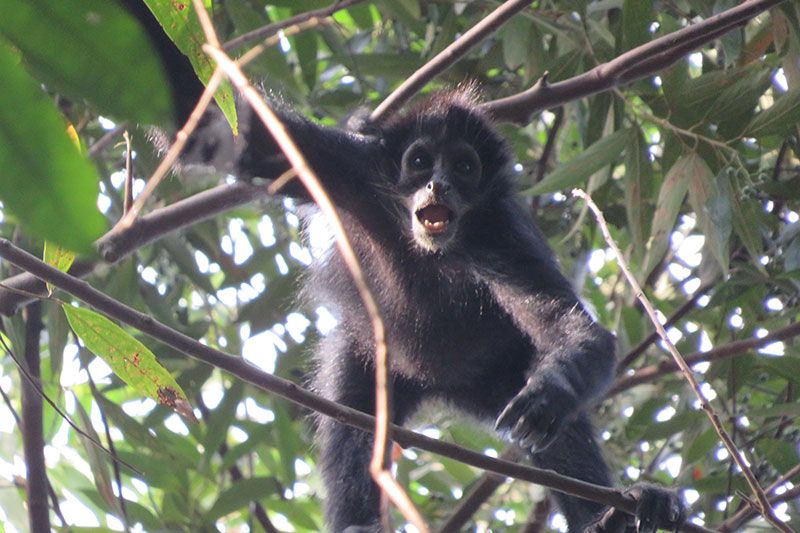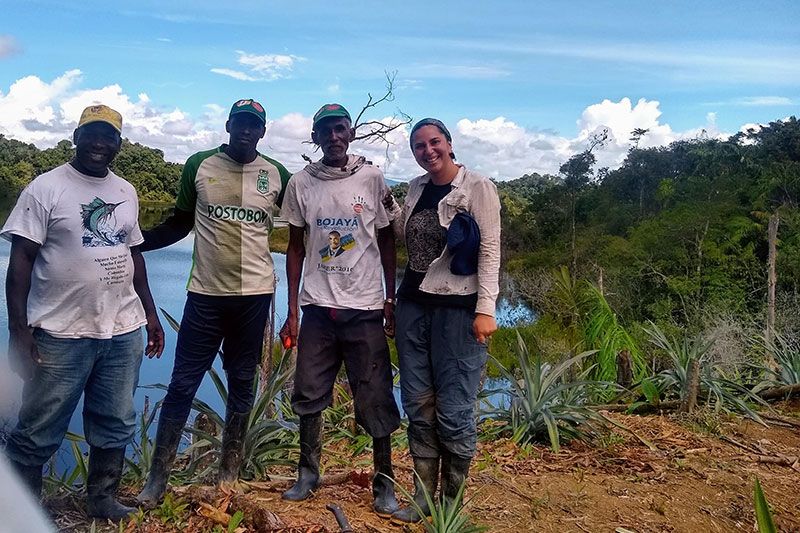On the trail of the Colombian black spider monkey

Funding for this project has now finished
Few signs of black spider monkey presence, many threats
Colombian black spider monkeys are endemic to the Pacific coast of Colombia and a small part of eastern Panama. They’re currently one of the rarest and least studied primates in the world. In Colombia, there’s no information about the number of monkeys left in the wild, or in which areas they’re in.
In recent years, Alma Hernandez and her team have been able to carry out searches for this species in certain areas of the Colombian Pacific. However, Alma’s work to date has proven that the conservation scenario for black spider monkeys is very complex: pressure on their survival continues to mount due to increased deforestation, subsistence hunting, the exploitation of resources stemming from population growth, but also from an explosion of illegal activities such as mining and drug trafficking.
The conservation of this species needs an approach that involves local communities and a strong research component, which can generate information that enables really informed decisions to be taken. These will then have the best chance of having positive impacts for the conservation of this special and threatened primate.

Conservation education is key
Alma’s Neotropical Primate Conservation Colombia team will gather as much information as possible from new sites where Colombian black spider monkeys are currently found, as well as the main threats they face. The team will also take the opportunity to learn about their ecology and make sound population density estimates.
Local communities will be their key allies; they’ll work closely together to find possible solutions at the local level, both to reduce pressure on the forests and the species, and at the same time strengthen the governance of the communities. Conservation education is key here. Teaching future generations about how to reconnect with the forest, and making sure they get to know and value this special primate, who they live alongside, will be critical in the success of the project.
Thank you to all our donors who helped us fund this work. You can help us support more projects like this with a donation today:
